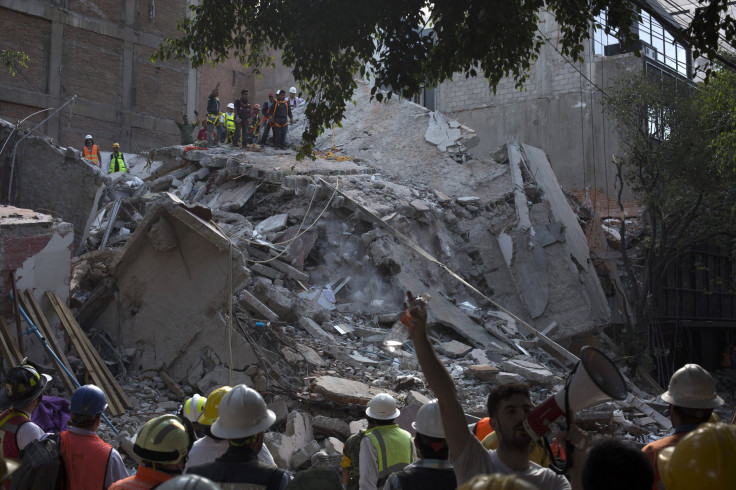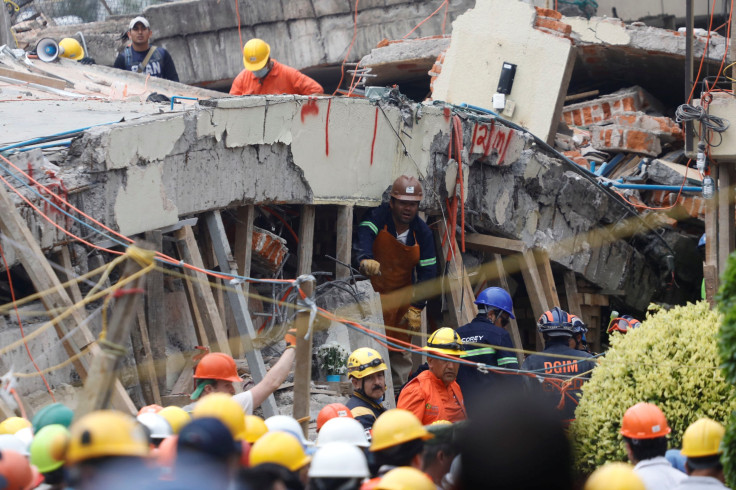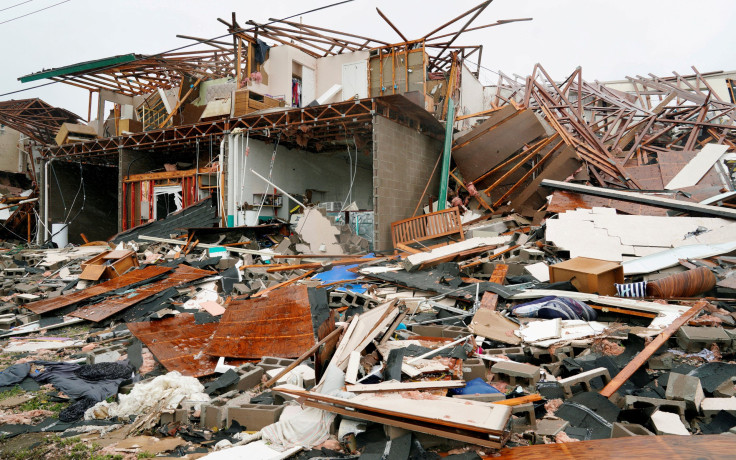Natural Disasters: Hurricanes, Earthquakes Likely Unrelated

Over the course of the last month, North America and the islands in the Caribbean have seen some extreme natural disasters that have resulted in the deaths of hundreds. It started with Hurricane Harvey devastating Texas, which was then followed by Hurricanes Katia, Jose and Maria.
The hurricanes were some of the strongest those regions had seen in decades and left destruction in their wake. As of Thursday, Maria had left Puerto Rico completely without power. Just hours before Maria made landfall on the island, a 7.1 magnitude earthquake, that has resulted in more than 200 deaths so far, struck Mexico Tuesday afternoon. Twelve hours prior to the earthquake in Mexico, one of half its strength occurred in Los Angeles.

So, four hurricanes and two earthquakes in one region of the world later have some people wondering whether the events are all related. Some studies in the past have linked hurricanes with earthquakes, and Hurricane Irma was accompanied by winds so strong they registered on seismometers used to measure earthquakes.
Despite the recent natural disasters, researchers say the events of the last few weeks are likely unrelated. “The short answer is that if there is a mechanism that links these events we scientists don’t know what it is,” John Mutter, a professor of Earth and environmental sciences and the Director of the Earth Institute post-doctoral program at Columbia University in New York, told International Business Times.
This is not to say that natural disasters aren’t linked ever, just that the hurricanes didn’t cause the earthquakes. Part of the reasoning behind this is that hurricanes are an atmospheric natural disaster, while earthquakes are solid Earth catastrophe, said Stephen Nelson, a geology professor who has been teaching a class on natural disasters at Tulane University for two decades.

“There should be no correlation between hurricanes and earthquakes,” Nelson told IBT. While the two don’t cause one another, they can both cause other disasters, “During earthquakes, often times [you get] landslides,” Nelson said. Sometimes hurricanes can cause landslides too due to the flooding and saturation of the Earth with all the rain. But earthquakes are a different story.
Earthquakes occur when two pieces of the Earth slip from their usual positions past one another along what is called a fault. The Earth’s crust and mantle, the top two layers that make up the planet, are made of a bunch of pieces called tectonic plates that fit together, according to the United States Geological Survey. But those tectonic plates move very slowly and sometimes bump into one another or slide past one another. Earthquakes usually occur where these plates meet, the faults. The edges of the plates sometimes get stuck while the rest of the plate keeps moving, when the edges unstick they cause a quake.
The fact that earthquakes have to do with the Earth’s layers actually moving makes them nearly impossible to predict. A hurricane on the other hand has to do with weather conditions, making it far easier to predict. Hurricanes are organized cloud systems that rotate over the tropics or subtropics and pick up water as they go. They’re classified by strong winds and a lot of rain, which can cause serious damage and flooding once they hit land. But even the strongest hurricanes show no sign of being strong enough to physically move the tectonic plates of the Earth to cause earthquakes.
While it may seem weird that so many natural disasters are happening so close to one another it’s probably just coincidence. The hurricanes are happening because of warm water in the Atlantic. The National Hurricane Center actually predicted there would be more hurricanes than average this season. Something that might begin to happen more and more if the water in that area of the world continues to warm.
As for whether or not a changing climate caused the recent storms, Professor Nelson said, “Actually being able to say that Maria or Harvey are due to global warming is a tough sell.” After some more time and observations of the changing conditions in the ocean though it might be easier, “I think we’ll have a better idea after 20 years.”
© Copyright IBTimes 2025. All rights reserved.



















